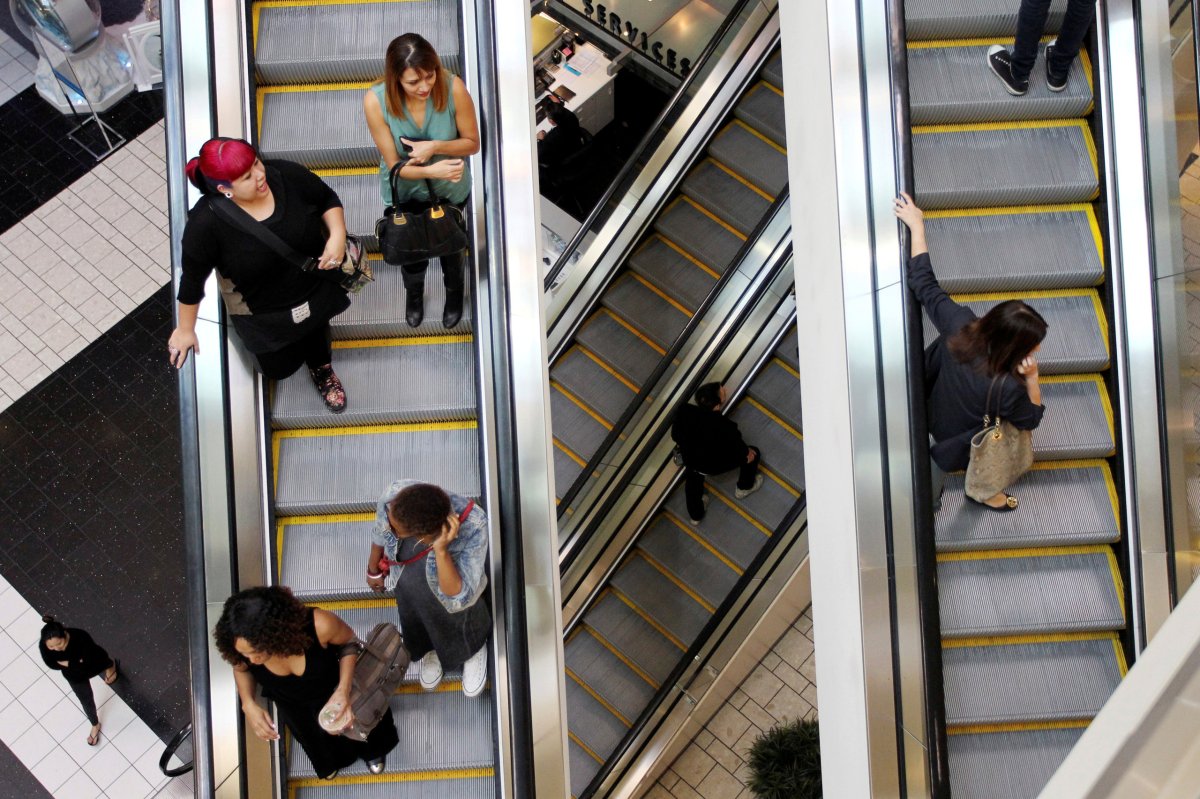By Lucia Mutikani
WASHINGTON (Reuters) – U.S. retail sales rose more than expected in July as households boosted purchases of motor vehicles and clothing, suggesting the economy remained strong early in the third quarter.
Other data on Wednesday showed manufacturing output rising steadily last month and worker productivity growing at its fastest pace in more than three years in the second quarter, though a drop in labor costs pointed to moderate wage inflation.
Strong domestic demand supports expectations the Federal Reserve will raise interest rates in September for the third time this year, despite volatility in emerging markets that was sparked by an economic and political crisis in Turkey.
“The economy appears to be very well-positioned to continue to grow,” said Jim Baird, chief investment officer at Plante Moran Financial Advisors in Kalamazoo, Michigan. “The persistently optimistic consumer sector is doing its part to keep the growth engine going, and retailers are benefiting.”
The Commerce Department said retail sales increased 0.5 percent last month. But data for June was revised lower to show sales gaining 0.2 percent instead of the previously reported 0.5 percent rise. Economists polled by Reuters had forecast retail sales nudging up 0.1 percent in July. Retail sales in July increased 6.4 percent from a year ago.
Excluding automobiles, gasoline, building materials and food services, retail sales advanced 0.5 percent last month after a downwardly revised 0.1 percent dip in June. These so-called core retail sales correspond most closely with the consumer spending component of gross domestic product.
Core retail sales were previously reported to have been unchanged in June. Consumer spending is being supported by a tightening labor market, which is steadily pushing up wages. Tax cuts and higher savings are also underpinning consumption.
July’s increase in core retail sales suggested the economy started the third quarter on a solid footing after logging its best performance in nearly four years in the second quarter.
GDP surged at a 4.1 percent annualized rate in the April-June period, almost double the 2.2 percent pace in the first quarter. While the economy is unlikely to repeat the second quarter’s robust performance, growth in the July-September period is expected to top a 3.0 percent rate.
The Fed increased borrowing costs in June and forecast two more interest rate hikes by December.
The economy’s prospects for the third quarter were also bolstered by a report from the U.S. central bank on Wednesday showing production at the nation’s factories increased 0.3 percent in July after surging 0.8 percent in June.
That helped to offset declines in mining and utilities output, lifting industrial production 0.1 percent last month.
Manufacturing output was driven by strong increases in the production of motor vehicles and parts as well as computer and electronic goods. There were also gains in the output of apparel and leather, petroleum, chemicals, plastics and rubber products.
The dollar was trading near a 13-month high against a basket of currencies and prices for U.S. Treasuries rose. Stocks on Wall Street fell sharply as the currency crisis in Turkey and ongoing concerns about trade policy hurt sentiment.
PRODUCTIVITY RISES
Last month, auto sales rose 0.2 percent after edging up 0.1 percent in June. Sales at clothing stores rebounded 1.3 percent after declining 1.6 percent in June. Receipts at service stations advanced 0.8 percent.
Online and mail-order retail sales increased 0.8 percent, likely boosted by Amazon.com Inc’s “Prime Day” promotion. That followed a 0.7 percent rise in June. Americans spent more at restaurants and bars, lifting sales 1.3 percent.
“Restaurants are a highly discretionary category, and continued strength suggests that households are not too worried about higher gas prices and that tax cuts are providing a cushion against higher expenses at the pump,” said Ellen Zentner, chief U.S. economist at Morgan Stanley in New York.
But receipts at furniture stores fell and sales at building material stores were unchanged last month. Spending at hobby, musical instrument and book stores declined for a fourth straight month.
In a third report on Wednesday, the Labor Department said nonfarm productivity, which measures hourly output per worker, rose at a 2.9 percent annualized rate in the April-June quarter. That was the strongest rate since the first quarter of 2015.
Data for the first quarter was revised lower to show productivity increasing at a 0.3 percent pace instead of the previously reported 0.4 percent rate. Economists had forecast productivity growing at a 2.3 percent rate in the second quarter. Compared to the second quarter of 2017, productivity increased at a rate of 1.3 percent.
Unit labor costs, the price of labor per single unit of output, fell at a 0.9 percent pace in the second quarter. That was the weakest pace since the third quarter of 2014. First-quarter growth in unit labor costs was revised up to a 3.4 percent rate from the previously reported 2.9 percent pace.
Labor costs increased at a 1.9 percent rate compared to the second quarter of 2017, pointing to moderate wage inflation.
(Reporting by Lucia Mutikani; Editing by Paul Simao)



















